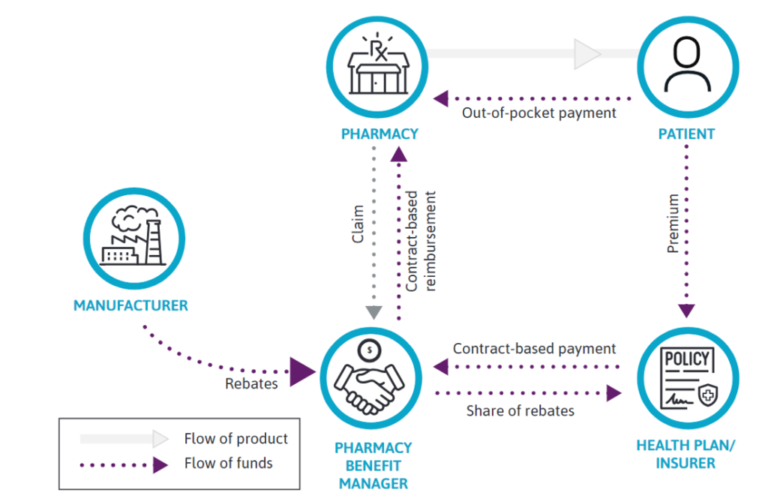
There is no shortage of recent policy announcements affecting healthcare, from potential Medicaid cuts to changes in the administration.
Several of these announcements have major implications for employers as they develop their health benefits strategies. In a recent interview at the Business Group on Health conference in Nashville, Ellen Kelsay, CEO of the employer advocacy organization, shared the policy trends that are top of mind for her right now:
1. Macroeconomic trends: Employers are already dealing with rising healthcare costs, and some current macroeconomic trends may exacerbate those issues. For example, there may be cuts to Medicaid funding, which could have a serious impact on employers as the commercial market has long subsidized the Medicaid program, according to Kelsay. Hospitals and providers will often charge commercial plans more to make up for the loss they incur with government-funded programs.
“I’ve spoken to a few health plan executives that will say things very bluntly, like, “Well, if we are getting cut here, that means we’re gonna have to turn around and charge the commercial market more. As if it’s just an assumption that the commercial market is going to keep paying more, and they can’t,” she said.
In addition, the Trump administration has instated a 145% tariff on all imported goods from China. Many healthcare products, including active pharmaceutical ingredients and medical devices, are manufactured in China. He has also introduced a 10% tax on goods from other countries. And there are concerns that these tariffs could further increase costs for employers, Kelsay said.
2. Administrative changes: There are several new players in the Trump administration that affect healthcare, such as Robert F. Kennedy Jr. at the Health and Human Services and Dr. Mehmet Oz at the Centers for Medicare and Medicaid Services. The Business Group on Health is keeping an eye out on “what some of those new players are thinking about, what they might be promoting that could be very beneficial to employer plans and to plan members, or could potentially be harmful,” Kelsay said.
She gave the example of RFK Jr.’s Make America Healthy Again (MAHA) initiative. There are elements of MAHA that the Business Group on Health supports, such as an emphasis on prevention and nutrition. However, there are also parts of MAHA that are very concerning, including the downplaying of vaccines.
“Yes, healthy eating and nutrition is important,” Kelsay said. “But also a big part of prevention is making sure that children are vaccinated and adults are vaccinated, and if there is another pandemic, that people get the vaccines that they need.
3. Threats to ERISA: There have been challenges to the Employee Retirement Income Security Act (ERISA) from state and local laws and other players. ERISA is a federal law that sets minimum standards for private health plans. The Business Group on Health is a major advocate of protecting ERISA, arguing that it’s essential for establishing a consistent regulatory structure for employers.
“Certainly for our members that are large, self-insured employers operating in many states around the U.S., having the ability to have a uniform, consistent national plan is significantly of importance to them,” Kelsay said. “So when there are some threats to ERISA, that creates some concern for employers.”
Photo: doyata, Getty Images






